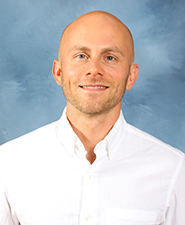When a member of Congress recites a Wendell Berry poem on the fly, a man can be forgiven for dropping his guard. He can also be forgiven for wondering what kind of madness made her go to Washington.
I didn’t know anything about Marie Glusenkamp Perez, a Democrat who represents Washington State’s 3rd District, until I read Evelyn Quartz’ essay in Compact on her “quiet radicalism” (which I recommend). Often labeled by journalists as a “moderate” or “centrist,” Quartz describes her instead as someone who “isn’t splitting the difference between two poles so much as she is working from a different starting point, centered on repair, ownership, and trade work.” When Glusenkamp Perez mentioned Berry to Quartz as a source for that “different starting point,” I wanted to know more. The Congresswoman was kind enough to talk with me by phone.
I’ve edited our conversation for clarity.
AS: I saw an article about you in Compact magazine not too long ago, in which you referenced Wendell Berry. He’s kind of like the guardian spirit of our publication. I wondered where you first encountered him, or what kind of role he plays in your larger thinking.
MGP: I probably read him first in high school, maybe earlier. I consider him to be maybe one of the greatest living American thinkers. I actually wrote to him, because you know his book, The Unsettling of America, was a retort to the 1974 Farm Bill, and I lived in that, in the Ag Bill markup. Yeah, I wrote to him, and I got to talk to him on the phone, and he said I was the first member of Congress to write him.
AS: My dad was a farmer in the eighties and went bankrupt. That whole era, Berry speaks to it, and speaks to it so personally to me. I’ve heard you talk in other contexts about your general approach to things, but knowing that Berry’s behind it, would you put it into your own words? I know you have, for example, your focus on Right to Repair. That might seem to be a weird emphasis, but it clearly connects to a larger vision. Could you talk about that larger vision? That could be helpful to our readers.
MGP: Well, to bring it back to Wendell. You know, his poem, “The Necessity of Faith”:
True harvest no mere intent may reap,
finally we must go to sleep,
and leave the world, all we desire,
to darkness and desire.
We save the good, lovely and bright
by will in part, in part delight.
I think that’s the point—a focus on the good. People talk about King David as a king primarily, but they forget that he was a shepherd first and then a musician. And it’s about keeping something alive, having a relationship of stewardship. And that is what generates real praise. A focus on what is good is how you advance goodness. It’s not a constant criticism of what you don’t like.
If you’re being trained to identify counterfeit bills, you don’t just study counterfeit bills. You have a muscle memory, you know in your mind’s eye what the real thing looks like. I think that one way that the political agendas have gone off the rails is that they’re continually trying to subsidize the negative externality.
I believe in our right to fix our own stuff, to not be consumers, but to be stewards and to honor work. People have misunderstood work as a bad thing. Toil is the bad thing, right? Toil is the curse. But work is a joy. It’s exploitation that is the problem.
A focus on what is good means a right relationship to our stuff. We don’t want a black box that is uncontrollable. We don’t want to be perpetual renters of disposable crap. We don’t want to rely on other people being exploited in some other country or in a mine somewhere. We want things that last.
My stove is from 1954. Think about how often that has been bought and sold and how much economic value and national health comes from things that are made to last and that are repairable. In my experience running an auto shop, working on cars—we’ve been buying tool sets for 30 years. Why do I need to buy another set? You know, are cars getting better? Are they lasting longer?
AS: Things do feel like they’re getting worse. I think a lot of people can resonate with that.
MGP: Like microwaves—just touch screens, and just crap. Right to repair was actually one of the motivating reasons for me to run. I was given a 2% chance of winning this race. But I thought, “well, even if I can’t run, I can elevate this issue I really care about.” We don’t just want more cheap free stuff from the government or more programs or grants to apply for we’ll never get. We want an affirmation of the nobility and power of our own work and skill.
AS: So you now have work to do as a congresswoman, and to me and probably some other people that could seem a little bit more like “toil” than work. I wonder how you see it. First of all, let me just ask you this: would you kind of call yourself a “localist”? Is that a fair label or would you use a different word?
MGP: Yeah, I think that’s right.
AS: So now you’re representing your local community in the federal government. And I’m wondering how you see the relationship between the federal government and the local community. Is your work more to get the federal government to “do more,” or is it more about “getting it off our backs,” or some combination of the two?
MGP: Well, I don’t have a political background. So I’m always hesitant to use labels. I don’t know what they mean to people. For example, I don’t particularly call myself an environmentalist. I love the Pinchot National Forest. My specific woods, the land that my family is from. My view is that if you could get 435 members of Congress to show up with a intimate local knowledge of the thing itself and not the modification of the thing, or the idea of the thing, but fidelity to the land itself, the community itself, and its nuance and detail, that through bringing all of those lenses together, what shines through is a more useful federal policy because it is kind of refracted or focused through all of these local lenses. And ideally, the germ of what is durably true and useful is what shines through and results as a federal policy.
AS: I’m not very interested in party politics, but I think it can help get at some other stuff that I am interested in. Do you see any connection between the deeper issues you care about—the turning of more and more of us into consumers, fewer of us being able to produce things and exercise competence—and the hyper-partisanship, the spectacle politics?
MGP: Yes. I wouldn’t have been given an internship here on the Hill. You know, Wendell talks a lot about all the problems that come from over-specialization. If you’re building a small business, if you’re trying to grow and steward something locally, you can’t just walk away for an internship for two months in the summer or a fellowship for a year. You would lose your customer base, you would lose the progress on your land. You can’t just walk away from your community and come to D.C. You have a lot of specialization, and a lack of the deeper local knowledge and fidelity.
What the political consultant industrial complex wants is language that is scalable and marketable. They want to do the same TV commercial in Ohio as in Washington State or Pittsburgh. And so we’re all shunted into the extrapolation of the thing, the commodification of the thing, and we’re not really getting what we want.
AS: The promotion of abstraction for the convenience of those kinds of people. Berry talks all about that.
MGP: Yes. It’s that movement away from the kinds of intimate debates you can have with your neighbors. In my community, we don’t have trash service. You have to take it all to the dump. That’s kind of our community meeting site. And it’s a much deeper thing because it’s honest. You know how much your neighbors are drinking or throwing away. It’s there in front of you. It commands a candor and an accountability that is much more productive to dialogue, to honesty.
AS: There’s a debate, at least among political science nerd types like me, about “economic” issues versus “cultural” issues. Some people say cultural issues—culture war kind of stuff—that it’s a distraction from the real issues, which are economic. I know that some of our readers probably would disagree with you on some of those cultural issues. What’s your approach to that? You in your platform tend to emphasize more of the economic stuff, although you have a unique and I think excellent emphasis on what those economic issues are. But you’re talking about how it’s easier to have disagreements when you’re just standing around at the dump than if you’re, you know, volleying on social media or something. How do you see that relationship between the economic and the cultural?
MGP: You want the economics to serve the culture. In my state, in politics broadly, they talk about a teacher shortage. In my state, net employment age has actually gone up. Our education system is really predicated on single earner households. You can’t hire enough educators to provide the nuance and care and intimacy that comes from a family.
And so we can keep chasing the symptoms. We have to ask ourselves, why in all these families are both parents working three jobs? Is that real power? Is that what we wanted out of feminism—the right to pump breast milk in a broom closet? Or to have a reliance on a duopolistic infant formula supply? We have to ask what’s driving the issues we’re facing.
We need a balance between chasing the most pressing symptoms, and a longer and proportional focus on the underlying, the root causes of those symptoms. So maybe instead of talking about “economics” versus “cultural” issues, you talk more about root causes versus symptoms.
But you do need to debate about what you want. That’s the whole basis of the classics: what is the good life? The other day I heard somebody defending their immigration platform with their affection for Grubhub.
AS: My impression is you seem to be unique in this perspective that you’re describing, unique on Capitol Hill. I know you have bipartisan support for some of these initiatives, but are there other representatives or other people in government who don’t just support what you’re doing or throw their name on a bill, but actually share this vision? People that our readers would be interested in learning about? Or do you feel like you’re pretty lonely?
MGP: I have immense respect for Jared Golden in Maine. It’s the other side of the country, but whereas my community’s economic history is timber and shellfish, his is timber and lobsters. I think our communities place a shared value on self-reliance and stewardship for ourselves and our neighbors.
I’ve been really grateful to my colleagues for their willingness to hear me. I feel like there are times in committee hearings where I’ve had to pray really hard—“give them ears to hear, give me gentleness and humility to say the truth as I see it.”
I’m not an expert. I’ve been grateful for the grace and the willingness to hear a different perspective, particularly like on ag, things like that.
AS: Is there anything in politics or policymaking that has you actually feeling optimistic, hopeful, something you’re excited about? What good things do you think are happening?
MGP: I think in many cases people are hearing and reflecting at some level on the national demand for domestic manufacturing, and on how to address farm consolidation. You know, we’re importing 40% of our fresh fruits and vegetables. I think people are starting to see the depths of the fentanyl crisis.
But identifying the problem doesn’t mean that you’re using the right tools to address that problem. Rather than just refuting and moralizing on whether or not you agree with the terms that someone’s presenting the problem in, let’s have a careful and honest discussion about what the experience of living in America today is like, and what do we want it to look like? And how do we get there? What are the policy solutions that are durably effective?
AS: Let me just ask one final question, circling back to the beginning. I asked you about Wendell Berry, and I’m wondering if there are any other writers or thinkers who have been inspirational or have informed the vision that you’ve laid out.
MGP: I read all over the place. There’s a book, The Art of Logic in an Illogical World, and I think that’s a useful tool for trying to understand where the conversations are getting off the rails. When it’s a difference in understanding of what the term is, when it’s actually a difference in what you think is good, she talks about how you delete the proper nouns and you try to boil it down till you know at what point in the argument you stop agreeing with that person, and then you start from there.
I have also been reading The Wheelwright’s Shop by George Stroup. It was written in 1920 by a guy in his eighties whose family had been building wooden wagon wheels for two hundred years in the same town. It is so illuminating to hear about. He says at one point, we worked from 4 a.m. to 8 p.m., and we considered it less physically taxing and mentally taxing than a factory job. That’s the difference between work and toil. He talks about how you need to understand how the sap’s running if you’re going to debark and stack the timber. They were involved in every part of the process. And you need to know what the end use is. You need to know about the horses that are going to pull this thing. You need to know about the roads, how to space the wagon wheels or a cart wheel or what makes a durable tongue or spoke or hub. He also talks about during World War I, these stands of timber that were purposely grown and stewarded being literally turned into cannon fodder. That’s some of what I’m reading right now.
AS: Thank you very much, I really appreciate your time.
MGP: By the way, I had a friend visit from out of town, and they brought me a paper copy of your newspaper. I’ve found really interesting stuff with you guys. I really appreciate the work you’re doing and the way you’re thinking.
AS: Really? It gives us a lot of oomph when we hear that people are reading. Thank you!
MGP: Thanks, Adam. See you around, I hope.
Image via Wikimedia.






2 comments
Phil
How refreshing! I believe I’ve heard about this member of Congress; her husband runs an auto repair shop, I think. We need more politicians like her. And more politicians who have spoken to Wendell Berry.
Brian Miller
“…if you could get 435 members of Congress to show up with a intimate local knowledge of the thing itself .” The shame of it all, the shame of us, is that she is an anomaly. It hasn’t been that long ago since the farmer/legislator blue-dogs in Tennessee were chased out of the Democratic party (and for that matter, the Republican as well). Maybe some day.
Comments are closed.